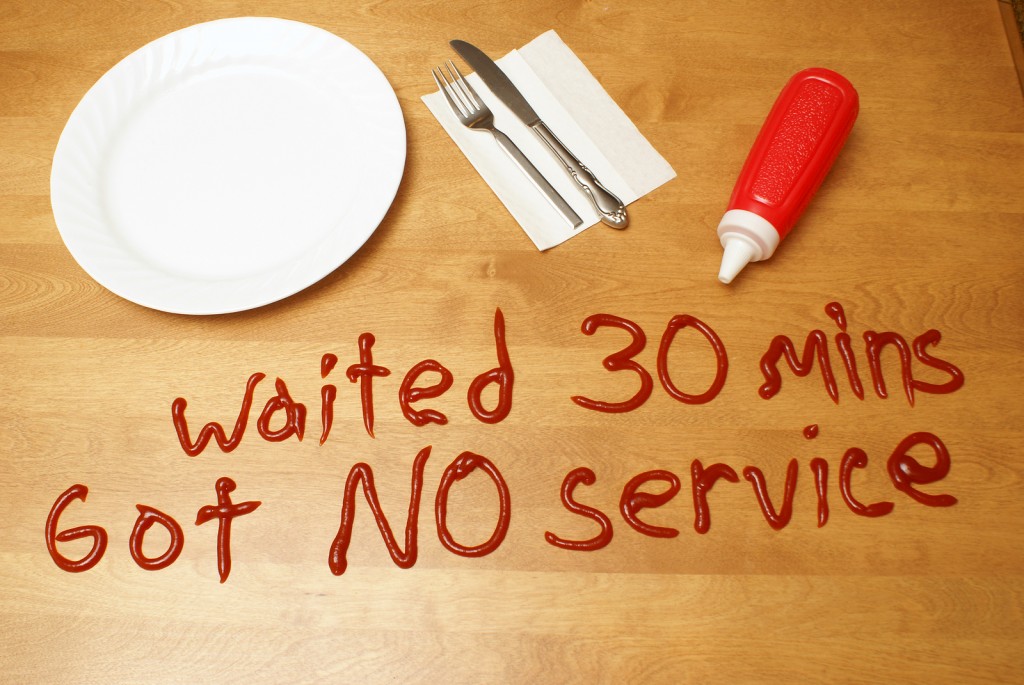10 years ago when a guest dined at a restaurant and had poor service or bad food, they had one option: talk to management. Sometimes the restaurant gladly took care of the issue. Other times, not. Actually, companies could get away with mediocre service and cold food and just hope the disappointed guest didn’t pass the word around.
Now in the age of social medial, if a customer has a negative experience, the customer has the choice to voice his or her opinion via social media. Actually, they don’t even need to be a consumer, because if you just fired their cousin, they might write a negative review. And this is one of the pitfalls of social media.
Companies are constantly pressured to actively work with the consumer to swiftly solve the situation due to fear of negative online backlash and protecting their online reputation. So it’s a win for the customer, but is it really fair to the company? Studies have shown that in the restaurant industry, negative online reviews can decrease your business by 30%. But what if half of those negative reviews are from a jaded ex-employee? Or, what if something as simple as cold bread prompted the review? If the company wasn’t even aware of the issue, is it fair to lose up to 30% of your sales because of cold bread? Time wrote an interesting article warning readers to read positive and negative reviews with caution, and The Blaze wrote a story about a small business owner who got spammed by negative reviews on social media.
The customer now wields the power of your online reputation in the palm of their hand. It’s more important than ever to focus on customer satisfaction, no matter what industry you’re in. Because odds are your business is in some kind of directory that prompts visitors for reviews, whether you’re aware of it or not.
How important is your online reputation? 90% of consumers and businesses will research your company before choosing to do business with you. That being said, your first impression online will either entice a visitor to visit your business or purchase from you online, or choose your competitor.
Do the research. What does your online reputation say about you? Have you searched for your company on a search engine yet? Try searching for your company on Google & Bing. Look at the first 3 pages of results and pay close attention to those websites and directories with reviews. Respond to negative reviews in a polite and apologetic manner. If you feel a review is unjust, contact the directory and inform them of it. They may or may not take the review off, but it’s worth trying.
And don’t be tempted to ask family members or employees for fake reviews to offset those bad reviews. Fake reviews can really hurt your business in the long run. More on that next time!
Sandi O
tovodesign.com
Google+
tovo Google+ Page

